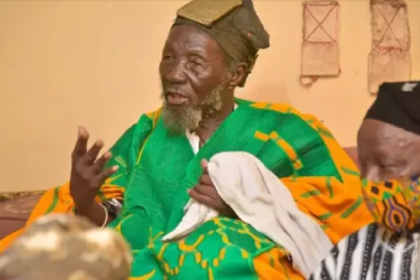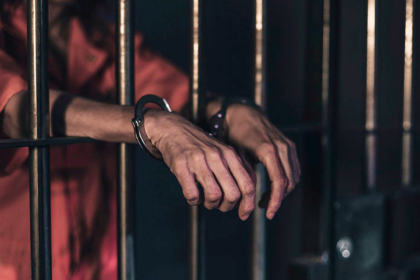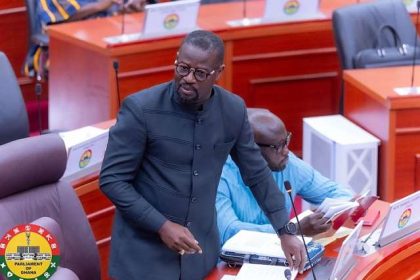Brigadier General Zibrim Bawah Ayorrogo, the Deputy Commandant of the Kofi Annan International Peacekeeping Training Centre (KAIPTC), has underscored the pivotal role of traditional rulers in addressing the nation’s evolving peace and security challenges.
He urged chiefs to sharpen their skills in negotiation, mediation, and governance, explaining that these competencies were no longer optional but vital tools for effective leadership in contemporary Ghana.
The Deputy Commandant, speaking at the opening of the 2025 Teshie Homowo School, described traditional leaders as indispensable actors in Ghana’s peace architecture, with a unique ability to connect governance with the grassroots.
It was on the theme: “One People, One Culture, One Heritage: Building Capacities to Strengthen Traditional Leadership for Peace.”
The Teshie Homowo School, now in its second edition, is a flagship programme designed to equip traditional leaders with modern tools for leadership, governance, and peacebuilding, while reinforcing their role as custodians of Ghana’s heritage.
He noted that their involvement was critical in tackling disputes over land, farmer-herder conflicts, chieftaincy disputes, illegal mining, youth unemployment, political tensions, radicalization, drug abuse, teenage pregnancy, and the growing problem of misinformation through social media.
“Building capacity through training, dialogue, and exchanging ideas is not a luxury but a necessity for our chiefs and traditional leaders,” Brig Gen Ayorrogo stressed.
He said, “It helps custodians of our land and culture to preserve our traditions, maintain community identity, and promote coexistence among ethnic groups. It will also enable our chiefs to understand negotiation techniques, facilitate mediation in disputes, and prevent minor disagreements from escalating into full-blown conflicts.”
Brigadier General Ayorrogo said the two-day seminar would provide chiefs with practical tools to strengthen leadership, enhance development, and reinforce peace at the community level.
“A confident chief or traditional leader can address conflicts, bring feuding factions to the negotiation table, and become a beacon of stability in difficult and challenging times,” he told participants.
He urged them to share their experiences freely and that, “When we build your capacity, we build the peace of our dear nation. A peaceful and harmonious Ghana begins in our palaces, our communities, and most importantly, in our hearts.”
Mr. Enoch Addo, Registrar of the Greater Accra Regional House of Chiefs, commended KAIPTC and its partners for spearheading the initiative, describing it as a timely response to the challenges facing the chieftaincy institution.
He noted that while chiefs had historically contributed to Ghana’s development, their work was often undermined by recurring conflicts and divisions.
Such disputes, he said, sometimes transformed festivals and cultural gatherings, events meant to unify people, into occasions of violence and destruction.
“The role of our chiefs and other traditional officeholders in the overall development of this nation cannot be overemphasized,” Mr. Addo said.
“But the challenge has been the anti-developmental tendencies of the institution, namely chieftaincy conflict and other forms of disputes that develop into harm for society.”
He welcomed the annual capacity-building programme, describing it as “a significant contribution” towards addressing these issues.
The Registrar disclosed that the Ministry of Chieftaincy and Religious Affairs had pledged full support for the initiative and expressed hope that it would eventually be rolled out as a national programme.
Mr. Addo further encouraged participants to take the sessions seriously, highlighting the expertise of the facilitators drawn from conflict resolution and peacebuilding fields.
“I urge you to listen attentively and gather all the necessary lessons that will help you play the leading role as chiefs of our various communities in order to bring peace in our area,” he said, adding that, “Shared knowledge, our history, and our common destiny bind us together.”
Gbetsoolo Nii Ashitey Akomfra III, Teshie Mantse and President of the Teshie Traditional Council, emphasized that the chieftaincy institution remained central to the unity, identity, and development of communities, serving as a bridge between culture and governance.
“We are here to learn and to acquire knowledge, and to discuss how the chieftaincy institution can promote peace and culture,” Nii Akomfra III said.
He added that, “The lessons we gain will enable us to work together for the collective good of our people, and these insights will also be shared with others who could not be present.”
He called on traditional leaders and stakeholders to forge stronger partnerships with institutions that promote peace and social harmony. Ghana, he noted, could safeguard its cultural values and strengthen national cohesion only through unity and shared purpose.
The Teshie Mantse reaffirmed his commitment to advancing peace and cultural preservation in the community, stressing that traditional authority must remain a force for stability and positive transformation.
GNA






